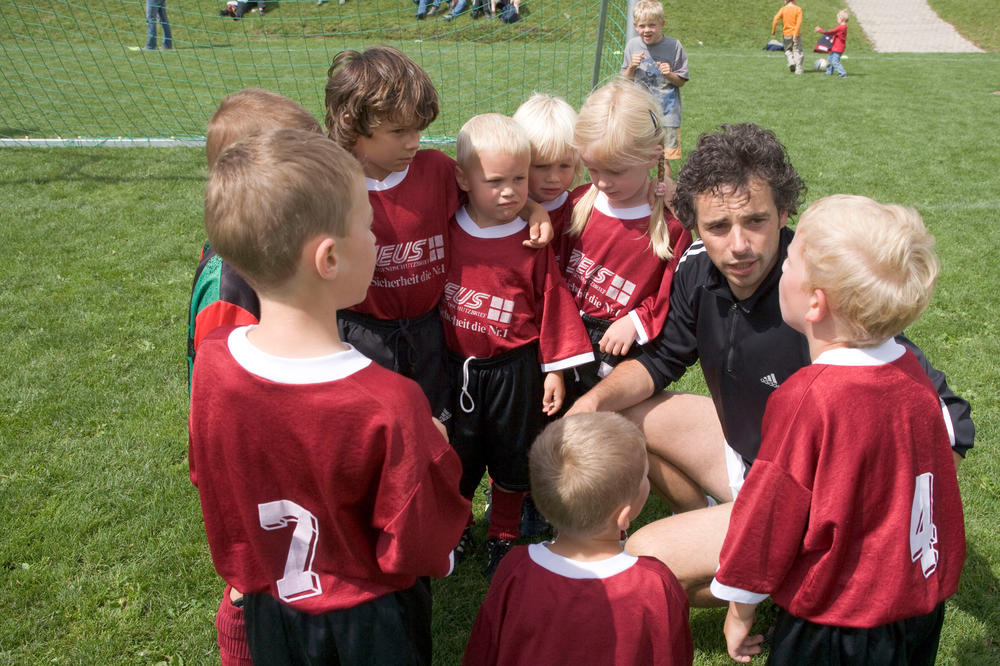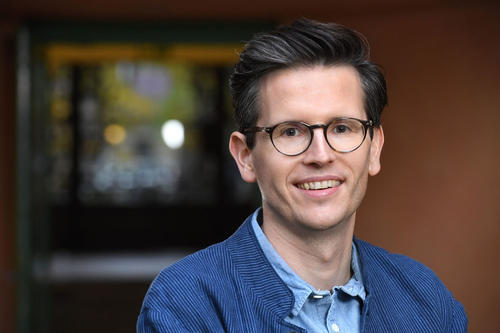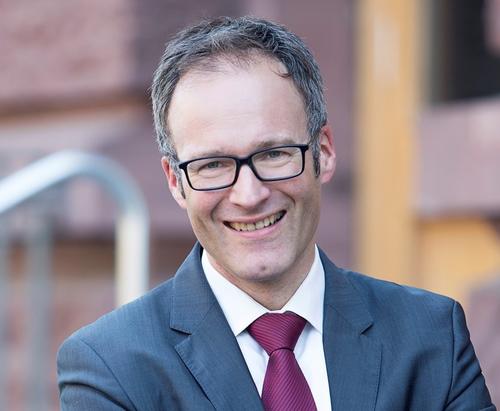Focus on Social Cohesion: What Holds Society Together?
Do court decisions on managers’ misconduct bolster the social market economy? How important is civic participation when it comes to forging societal bonds? The Grand Challenge Initiative “Social Cohesion” seeks answers to these questions and more
Sep 27, 2022
Team spirit on and off the field: Sports clubs are an opportunity for children to learn about cooperation and sticking together. Clubs, often run by volunteers, serve as a place where people with different political and social backgrounds interact.
Image Credit: Picture Alliance
When Germany’s Federal Minister of the Interior Nancy Faeser (a member of the Social Democratic Party of Germany) suggested an earlier retirement age for people who devoted time to volunteering, the idea was met with criticism from various political parties. “Is volunteering really volunteering if there has to be some kind of compensation for it?” the Free Democratic Party commented.
But Swen Hutter, a sociologist at Freie Universität Berlin, thinks Faeser’s suggestion is headed in the right direction. Hutter holds the Lichtenberg Professorship for Political Sociology at Freie Universität Berlin and the Berlin Social Science Center, where he studies how participation in civil society has changed throughout the Covid-19 pandemic. One conclusion he has drawn so far is that, “The pandemic has hit those groups hardest that organize people or communities on location, like sports teams or clubs. They are still feeling the negative effects today – and the rising energy costs caused by Russia’s attack on Ukraine could only make things worse for them.” And yet, he adds, more people have been getting involved in informal activities in response to crisis situations.
Hutter has a suggestion for politicians: “The nature of state support for civil society must adapt to these changes. It must promote loose associations more flexibly, without forgetting that traditional clubs and associations are places where people with different political views and social backgrounds come together in important ways.”
Hutter’s thoughts on this topic are connected to the initial findings of his research group “Mapping Civil Society Initiatives,” which is part of the larger research project “Social Cohesion and Civil Society. Interaction Dynamics in Times of Disruption” funded by the Berlin University Alliance. The alliance, made up of Freie Universität Berlin, Humboldt-Universität zu Berlin, Technische Universität Berlin, and Charité – Universitätsmedizin Berlin, supports research on global challenges that investigates topics such as global health or, in this case, social cohesion.
What holds society together? Where does social cohesion come from? Researchers from six funded projects are seeking answers to big questions like these.
Around the world, societies are asking themselves how to maintain social cohesion in times of crisis. Researchers are also interested in this question. The Berlin University Alliance, a consortium made up of Freie Universität Berlin, Humboldt-Universität zu Berlin, Technische Universität Berlin, and Charité – Universitätsmedizin Berlin, have devoted a week to the Grand Challenge Initiative “Social Cohesion” to showcase the topics that scholars and scientists have been working on in this area for the last two years. Read more about one project in which researchers from Freie Universität are making important contributions.
“In the negotiation process we’ll find out where we want to go as a society. And then when that’s cleared up, social cohesion can continue to grow.”
Swen Hutter holds the Lichtenberg Professorship for Political Sociology at Freie Universität Berlin and the Berlin Social Science Center
Image Credit: David Ausserhofer
Professor Hutter and his research group have been examining various civil society organizations, ranging from rural soccer teams, Fridays for Future groups, and the organization “Grannies against the Right.” They have conducted surveys with people involved in civil society from across the board. Hutter says, “Organized civil society certainly suffered under the restrictions put in place to deal with the coronavirus, but it was also an added challenge for these groups to then have to position themselves vis-à-vis the protests against those measures.” He mentions one example of a network against the right-wing in Brandenburg. As protests against the government’s pandemic response started to grow, they found themselves confronted with the question of how to react to these protest groups that were moving more and more to the right. “The network and other civil society initiatives recognized this radicalization of certain segments of society early on in the pandemic and carried out a lot of work to facilitate understanding among people,” says Hutter.
So what do we need to foster understanding among different groups in heterogeneous networks so that social cohesion can thrive? “Not enough research has been done on this subject, unfortunately,” he admits. However, he praises the “exploratory approach” promoted by the Berlin University Alliance, which he says has allowed them to “pursue research questions that emerge along the way instead of having to simply follow a predetermined plan, checking off boxes as each step is completed.” Hutter hopes that the Grand Challenge will get an extension.
That the Grand Challenge yields excellent research results is also indicated by the interim results from another sub-project of the sociologist and his colleagues called “Subjects of Cohesion.” This research team is investigating the question of when actors from civil society promote social cohesion – and when they do not – focusing on the example of the climate protest movement Fridays for Future.
Early Findings Have Led to Surprising Discoveries
Preliminary results suggest that the climate protests have not strengthened social cohesion, but rather mobilized opponents, and the activists themselves have become frustrated. This is a surprising finding given that the movement is considered one of the most successful in recent years, and with civic engagement usually providing participants with a sense of self-efficacy and empowerment.
Hutter says that the reasons for this frustration require further investigation – but he has an inkling as to what they might be: “What we are seeing is a movement that is having to come to terms with the fact that climate protection is not being implemented as comprehensively as they had hoped after receiving so much acknowledgment from politicians at the start of the movement – and this in the face of the 2021 election that was dubbed the ‘Climate Election,’ and seemed to indicate broad support for climate protection measures.” Hutter doesn’t consider the controversial debate around the climate protection groups’ demands and forms of activism as necessarily a bad thing: “In the negotiation process we’ll find out where we want to go as a society. And then when that’s cleared up, social cohesion can continue to grow.”
“Through my research I also want to make expectations on legal accountability more realistic.”
Hutter’s colleague Andreas Engert has a more skeptical view of the constructive potential behind social conflicts. Engert is a professor of corporate and capital market law at Freie Universität and is investigating the role that law plays in shaping social cohesion within democratic systems as part of his research for the BUA Grand Challenge “Social Cohesion.”
More specifically, Engert is studying what happens when managers are held accountable for negligence that in turn harms their company. “The more cases like this are litigated in court, the more people begin to question whether there isn’t some systemic problem at work here, related to managerial behavior in general.” Engert also points out that courts only ever handle individual cases that are often extremely complicated and rife with ambiguities. The issues involved in these cases cannot necessarily be traced back to broader social problems.
Engert is skeptical of the integrative power of conflicts considering the limitations of adjudication. He admits that his colleagues from the social sciences tend to see things differently. Professor Engert recognizes the benefits of the interdisciplinary work that is happening within the Grand Challenge “Social Cohesion” projects. According to him, it’s an opportunity for a productive conversation about the optimal level of conflict that society can bear.
Questioning the Integrative Power of Adjudication
Engert doesn’t think that current legislation and policies surrounding managerial liability are enough to make corporate leaders act more responsibly or to strengthen people’s trust in the rule of law, democracy, and ultimately social cohesion. While companies are required to hold managers legally accountable, they can and do provide them with liability insurance, Engert notes. “Proponents of these kinds of policies argue that companies are more willing to bring these accusations of misconduct to court if they can hold damage claims against an insurance,” Engert says. However, based on the insurance data he is analyzing, it is easy enough to challenge this claim: “Managerial liability cases are complex, and for that reason the lawyers of companies and managers tend to settle out of court. From time to time judges and the general public then end up thinking that the legislation itself is not strict enough,” he adds.
“Through my research I also want to make expectations on legal accountability more realistic.” Engert believes that the legal system is mostly unable to reduce the discontent surrounding managerial misconduct. “This essentially means that it is difficult for courts to contribute to social cohesion.”
This article originally appeared in German on September 26, 2022, in campus.leben, the online magazine of Freie Universität Berlin.
Further Information
Further information on Social Cohesion Week.



